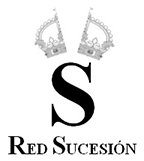Presentación
The Role of European Republics in the Formation of the Modern State. Modernising Alternative, or Driving Force of the System? (16TH-18TH CENTURIES).
RESEARCH PROJECT MICINN
The diverse perspectives from which historiography of the modern period has approached the study of the few republican systems in a European continent dominated by princes bear witness to the persistence and robustness of a series of ideological prejudices and nationalistic myths still affecting the analysis of the complex political realities of modern Europe.
The examination of the nature, scope and transformations suffered by the republican thought will be most adequately achieved by a joint approach to the cases of Genoa, Venice, the United Provinces the Helvetic Republic and the Hansa cities. Moreover, this approach also offers an essential tool for the comprehension of a series of monarchies which, at least until the early 18th century, relied on the financial, naval, logistic and information and commercial networking services best provided by families and firms originating in these republics. In short, these republics suffered important institutional transformations as a consequence of their cooperation and struggle with dynastic systems, but at the same time provoked substantial changes in monarchic systems, ensured the balance of power and eloquently moderated all absolutist tendencies.

























